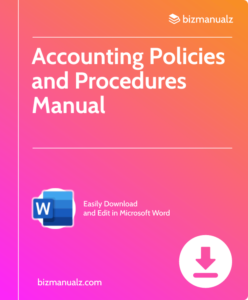What are Commonly Followed Accounting Rules and Standards in New Zealand?

In New Zealand, accounting rules an standards are followed rigorously. They ensure accuracy, transparency, an consistency in financial statements. The Financial Reporting Standards (FRS), issued by the New Zealand Accounting Standards Board (NZASB), provide guidance on recognition, measurement, presentation, an disclosure of financial transactions an events. Additionally, Generally Accepted Accounting Principles (GAAP) serve to standardize accounting practices.
Generally Accepted Accounting Principles (GAAP) in New Zealand
.jpg)
In New Zealand, accountants follow Generally Accepted Accounting Principles (GAAP) to guarantee uniformity an consistency in financial reporting. These principles supply regulations for recording an displaying financial info accurately an fairly.
A table is a handy tool to show the various GAAP in New Zealand. Here’s an overview of some accounted-for principles:
| Principle | Description |
|---|---|
| Accrual Basis | Transactions are noted when they happen, regardless of when cash is exchanged. |
| Going Concern | Financial statements are made with the thought that the business will continue its operations. |
| Materiality | Worthwhile items that can affect financial decision-making are presented in the financial records. |
| Consistency | Accounting methods an practices should be applied equally from one period to the other. |
| Fair Value | Assets an liabilities should be written down at their fair value, which shows their current market price. |
Apart from these principles, New Zealand’s GAAP also takes into account particular industry regulations an standards set by regulatory bodies such as the Financial Markets Authority (FMA).
To guarantee following these accounting rules an standards, here are some ideas:
- Regular Training: Accountants should receive regular training on updates or changes in GAAP regulations to stay current with developing practices.
- Compliance Reviews: Regular internal audits or reviews can help recognize any differences from GAAP standards an fix them quickly.
- Clear Documentation: Keeping clear documentation of accounting policies an procedures guarantees transparency an facilitates simple reference during audits.
- Professional Networking: Engaging with professional accounting organizations an networking with peers can promote knowledge sharing an keep accountants informed about best practices.
Various industries an sectors may have additional reporting requirements. For example, entities listed on the NZX must comply with the NZX Listing Rules. To adhere to these standards, businesses engage qualified accountants or auditors to interpret an apply applicable rules correctly.
It is important for businesses to stay abreast of any changes or updates in accounting rules an standards. Non-compliance penalties can be severe. Adhering to these standards shows commitment to transparency an financial integrity, fostering trust an confidence among stakeholders.
By adhering to these proposals, businesses can keep exact financial records, increase credibility, an make well-informed financial decisions that align with New Zealand’s accounting rules an standards.
Financial Reporting Standards (FRS)
Financial Reporting Standards (FRS) in New Zealand are crucial. They set the rules an standards for financial statements. They make sure transparency, consistency, an comparability are upheld across organizations. FRS are key for accurate financial reporting an successful decision-making.
The External Reporting Board (XRB) is responsible for several standards. These include NZ IAS 1, NZ IAS 7, NZ IAS 16, an NZ IFRS 15.
Unique details must also be taken into account. For example, NZ IFRS for Not-for-Profit Entities applies to non-profits. It helps them accurately an transparently report their financial activities.
FRS have a big impact. They contribute to accountability an trust in the country’s financial sector. They establish a strong framework for recording an presenting financial information. This supports New Zealand’s economic growth an stability.
Tackling New Zealand’s accounting standards is a challenge. It’s almost as daunting as the All Blacks’ undefeated streak!
New Zealand-specific Accounting Standards
Accounting practices in New Zealand must follow specific standards. These ensure consistency an accuracy in financial reports. NZ IAS 1 outlines the requirements for the presentation of financial statements. NZ IAS 7 focuses on cash flow statements. NZ IFRS 9 deals with classifying, measuring, recognizing, an derecognizing financial instruments.
These standards make sure there’s transparency an comparability between organizations. They give investors reliable information to make decisions. Companies must comply with them to maintain credibility an meet regulations.
Other requirements may exist, depending on industry or regulatory frameworks. It’s important for businesses to stay up to date an abide by these standards. Not doing so can lead to penalties, bad reputation, an missed opportunities. Stay ahead of the competition make sure your accounting practices follow established standards.
Compliance an Enforcement of Accounting Rules an Standards in New Zealand
Compliance with accounting rules an standards in New Zealand is very important. To ensure this, various measures are in place. Regulatory bodies like the New Zealand Financial Markets Authority (FMA) monitor an audit businesses. The Auditing an Assurance Standards Board (AUASB) set accounting standards, such as Generally Accepted Accounting Practice (GAAP). Penalties for non-compliance include fines, legal action, an loss of credibility.
The FMA also helps maintain financial integrity. They oversee the conduct of auditors, accountants, an financial advisors. an carry out inspections to make sure everyone follows the rules. This ensures trust in the financial reports. The 2008 global financial crisis highlighted the need for stricter enforcement. New Zealand strengthened its regulatory framework to promote compliance with accounting rules an standards.
Recent Developments an Changes in New Zealand’s Accounting Standards
In the fast-paced world of accounting, keeping up with the recent updates to New Zealand’s accounting standards is essential. These changes ensure businesses stay compliant an financial reports are transparent an accurate. Let’s look at the key changes.
| Recent Developments an Changes | Description |
|---|---|
| Adoption of IFRS 16 | NZ aligned its standards with IFRS, adopting IFRS 16. This helps improve lease accounting transparency by requiring lessees to record all liabilities. |
| Amendments to NZ IAS 12 | Amendments to NZ IAS 12 provide clarity for financial statement preparers regarding income tax treatment. |
| Introduction of PBE IPSAS | PBE IPSAS set guidelines for public benefit entities’ financial reporting. |
| Enhanced Disclosure Requirements | Updates to disclosure requirements guarantee that relevant information is disclosed, allowing stakeholders to make well-informed decisions. |
It’s important to be aware of any future changes or updates. Businesses must stay proactive an adapt accordingly. Here are a few tips:
- Stay informed. Review updates from standard-setting bodies like the XRB an be aware of any changes that may affect financial reporting obligations.
- Seek professional help. Get guidance from accounting professionals or engage a qualified accountant.
- Maintain records. Ensure all relevant info is recorded accurately an in a timely manner.
- Update accounting systems. Incorporate any changes in standards to record an report financial data correctly.
By adhering to these tips, businesses can stay on top of recent developments an meet their financial reporting obligations. Change is good – it enables transparency, accuracy an credibility in financial statements. Don’t forget, Janet from the Inland Revenue Department loves audits!
Importance of Following Accounting Rules an Standards in New Zealand
In New Zealand, accounting rules an standards are essential for transparency, reliability, accuracy, an avoiding legal repercussions. These rules provide a framework for recording an presenting financial information, helping investors, creditors, an other stakeholders make decisions.
Adhering to the rules promotes consistency an trust. This enables organizations to gain access to capital markets more easily, by enhancing credibility.
The XRB is responsible for creating GAAP an IFRS – international best practices. They cover various aspects of accounting like recognition, measurement, presentation, an disclosure.
New Zealand’s standards are also tailored to specific industries. For instance, they have guidelines for not-for-profit entities an specific rules for farming an forestry. This flexibility makes them more practical an relevant.
Deloitte’s report stated that New Zealand is converging its standards with IFRS. This makes global comparability of financial statements prepared by New Zealand entities possible.
Frequently Asked Questions

1. What is the primary accounting standard followed in New Zealand?
The primary accounting standard followed in New Zealand is the New Zealand International Financial Reporting Standards (NZ IFRS). These standards are based on the International Financial Reporting Standards (IFRS), enabling consistency an comparability on a global scale.
2. Are small businesses in New Zealand required to follow NZ IFRS?
No, small businesses in New Zealand have the option to follow New Zealand Generally Accepted Accounting Practice (NZ GAAP) instead of NZ IFRS. NZ GAAP provides a simpler framework for financial reporting tailored to the needs of small an medium-sized enterprises.
3. What are some key accounting rules specific to New Zealand?
Some key accounting rules specific to New Zealand include the treatment of Goods an Services Tax (GST), provisions for depreciation of assets, classification of financial instruments, an accounting for income taxes. These rules ensure compliance with local regulations an reflect New Zealand’s unique business environment.
4. How frequently are accounting standards updated in New Zealand?
The External Reporting Board (XRB) is responsible for reviewing an updating accounting standards in New Zealand. XRB aims to align the country’s standards with international practices. Updates are made periodically to address emerging issues an keep pace with global developments in accounting an reporting.
5. Is it necessary for companies in New Zealand to have their financial statements audited?
While it is not mandatory for all companies in New Zealand to have their financial statements audited, certain types of entities, such as publicly accountable companies an large proprietary companies, are required to undergo external audits. Audits ensure the accuracy an reliability of financial statements, providing stakeholders with confidence in the reported figures.
6. How can individuals an businesses stay updated on accounting rules in New Zealand?
Individuals an businesses can stay updated on accounting rules in New Zealand by regularly visiting the websites of relevant authorities such as the External Reporting Board an the New Zealand Institute of Chartered Accountants. These websites provide access to the latest accounting standards, guidelines, an publications, keeping practitioners informed about any changes or updates.
















This is a complex topic for students to grasp. Your article – What are commonly followed Accounting Rules and Standards in New Zealand – explained things in an understandable way. A small item of feedback: throughout the article, the word ‘an’ has been used instead of ‘and’. Again, thanks for a readable explanation.
Are there any accounting policies which determine how intercompany transactions should be priced and recorded for associated companies operating solely within New Zealand, i.e., no cross-border activity?
We do not address that in our manuals, but it will be noted for future updates.